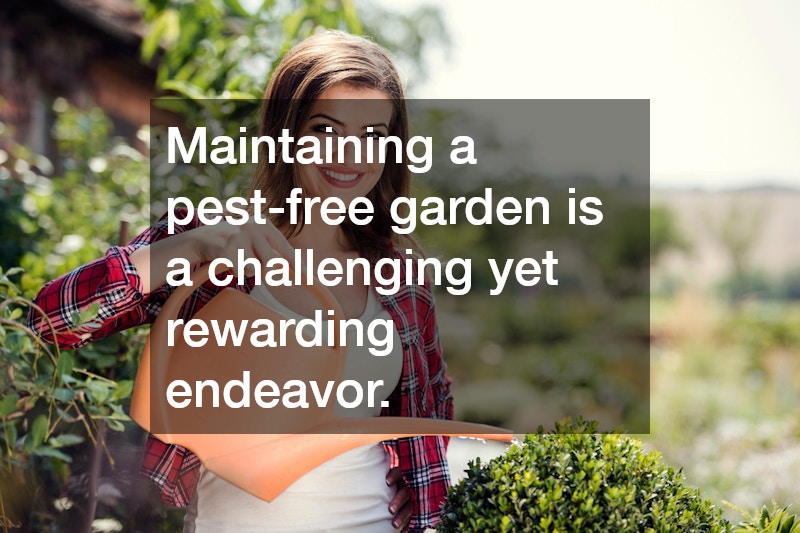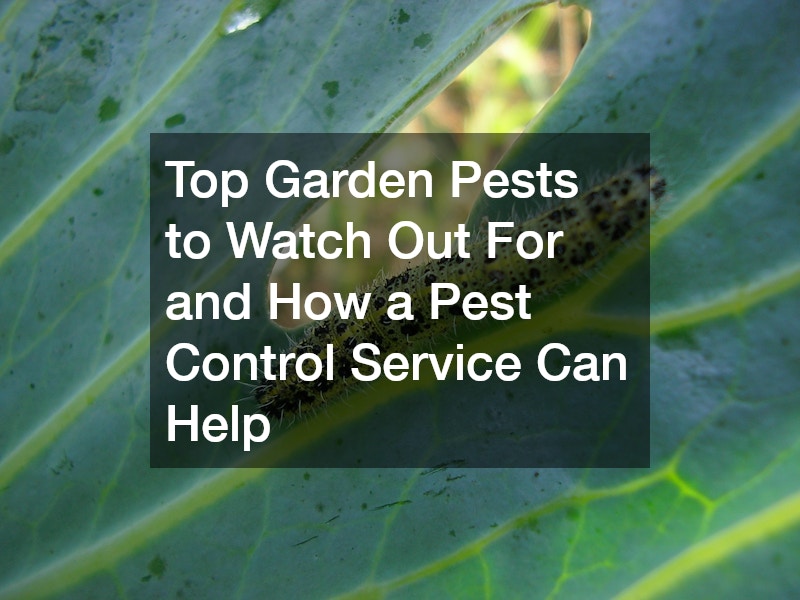Cultivating a thriving garden requires not only patience and dedication but also vigilance against a myriad of potential threats, such as garden pests. These uninvited guests can wreak havoc on plants, leading to diminished growth and even plant death if not properly managed. Understanding common pests and learning effective control strategies is crucial for any gardener looking to maintain a healthy garden.
What Are the Most Common Garden Pests?
Garden pests come in various shapes and sizes, with some of the most common being aphids, caterpillars, and slugs. These insects can cause significant damage by feeding on plant leaves, stems, and roots, often leading to stunted growth or defoliation.
Recognizing these pests and their specific damage patterns is an essential first step in effective garden pest management. In addition to insects, rodents such as mice and rats can also cause destruction in gardens. They tend to eat seeds and seedlings, which can prevent plants from reaching maturity. Addressing both insect and rodent infestations requires a comprehensive approach to ensure the garden flourishes.
Another prevalent issue involves nematodes, microscopic worms that target plant roots. Unlike larger pests, nematodes often go unnoticed until plants start showing signs of decline. Early detection and intervention are key in mitigating their destructive effects.
How Can You Identify Signs of Pest Infestation in Your Garden?
Identifying the signs of pest infestation early can make a significant difference in saving your plants. Look for visible signs such as holes in leaves, wilting, or discoloration, which may indicate pest activity. Familiarizing yourself with these signs allows for rapid response and prevents further damage. Presence of droppings or nesting materials can also be indicative of pest infestation. Rodents, for example, tend to leave behind chew marks or nests in garden corners. Acting promptly upon discovering these indicators can prevent significant plant loss.
Another critical sign to watch for is sticky residue or honeydew on plant surfaces, often a byproduct of aphids or similar pests. This residue can attract secondary issues such as mold growth, compounding the detrimental effects on plants. Regular garden inspections can help catch these signs early.
What Are the Key Benefits of Hiring a Professional Pest Control Service?
Professional pest control services offer expertise and tailored solutions beyond what the average gardener might achieve. One primary benefit is their ability to quickly identify and diagnose pest problems with accuracy. In places like Asheville, NC, hiring a pest control service provides access to local specialists familiar with the area’s common pests.
Moreover, professional services ensure the use of effective and environmentally safe treatment options. These experts have access to specialized products and equipment that can yield better results while minimizing adverse effects on the environment. This approach aligns with sustainable gardening practices and supports long-term garden health.
Furthermore, engaging professionals can save time and effort for gardeners. By addressing infestations effectively, professional pest control services can prevent recurring issues and reduce the need for constant monitoring. This allows gardeners to focus on nurturing their plants while experts tackle pest concerns.
How Does a Pest Control Service Tailor Their Approach to Local Pests?
Understanding the local pest landscape is crucial in devising efficient pest control strategies. Pest control services often start by conducting thorough assessments of the affected areas to identify specific pest threats. This knowledge allows them to tailor solutions that effectively target local species while considering ecological sensitivities.
In Asheville, NC, diverse climatic conditions influence the types of pests that are most prevalent in gardens. Professional services are knowledgeable about these local pests and adjust their methods accordingly, ensuring both immediate relief and long-term prevention. Customization of pest control strategies is fundamental in managing the unique challenges presented by regional biodiversity.
Moreover, these services often incorporate ongoing monitoring and adjustments to their approach as needed. As seasons change, the pest dynamics within a garden can shift, requiring adaptive strategies. The continued engagement of a pest control service ensures that garden defenses remain robust against evolving threats.
Maintaining a pest-free garden is a challenging yet rewarding endeavor that requires knowledge, vigilance, and sometimes professional intervention. Understanding common pests, recognizing signs of infestation, and leveraging expert pest control services can significantly enhance your garden’s health and productivity. For those in Asheville, NC and similar areas, local pest control services provide tailored solutions that cater to unique regional challenges, ensuring gardens thrive year-round.
.

